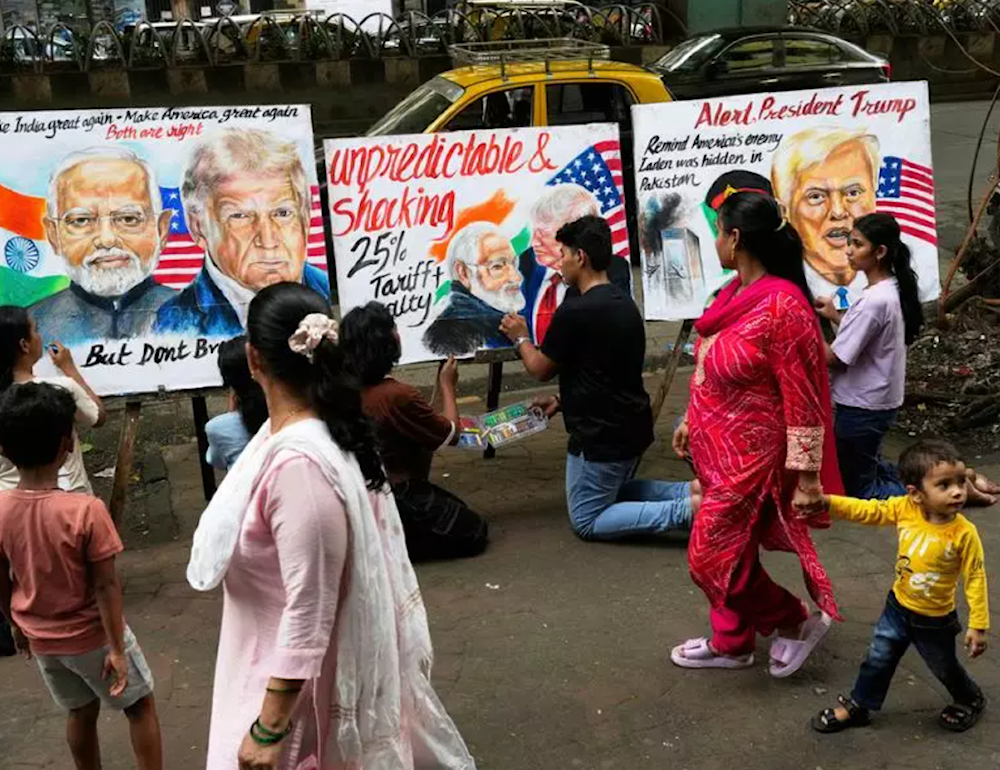Trump’s tariffs spark calls in India to boycott American goods
Following Donald Trump’s 50% tariff on Indian goods, calls to boycott American brands like McDonald’s, Coca-Cola, Apple, and Amazon are gaining traction as India’s ‘buy local’ sentiment grows.
-

People walk by as students of Gurukul school of Art complete artwork of US President Donald Trump and Prime Minister of India Narendra Modi in Mumbai on August 1, 2025. (AP)
American multinationals from McDonald’s and Coca-Cola to Amazon and Apple are facing growing calls for a boycott in India, as Prime Minister Narendra Modi’s supporters and business leaders protest US tariffs on Indian exports.
India, the world’s most populous nation, is a major growth market for US brands, which have built a strong presence by targeting the country’s expanding middle and upper classes. From Pepsi and Starbucks to Apple and Domino’s, US labels remain powerful status symbols. India is also the largest market for Meta’s WhatsApp, and Domino’s operates more outlets here than any other brand.
But that enthusiasm is now clashing with nationalist sentiment after Donald Trump imposed a 50% tariff on Indian goods, a move that has rattled exporters and strained ties between New Delhi and Washington. While there’s no immediate sign of a sales hit, social media campaigns and offline calls to “buy local” are gaining traction.
American consumer giants dominate Indian retail spaces, Pepsi and Coca-Cola drinks crowd store shelves, Starbucks outlets draw long queues, and Apple store openings attract throngs of customers. Yet, the tariff dispute has sparked renewed debate over the nation’s dependence on foreign brands.
‘Made in India’ campaign gains momentum
Manish Chowdhary, co-founder of Wow Skin Science, released a LinkedIn video urging Indians to rally behind local farmers, entrepreneurs, and manufacturers.
“Made in India should become a global obsession,” Chowdhary said, citing South Korea as an example of how local food and beauty products can achieve worldwide recognition.
Rahm Shastry, CEO of DriveU, echoed the sentiment, calling for home-grown alternatives to global tech platforms. “India should have its own home-grown Twitter, Google, YouTube, WhatsApp, Facebook, like China has,” he wrote.
Despite the calls for boycotts, many foreign brands still enjoy deep customer loyalty. Domestic companies compete strongly in areas like coffee and retail, but building a global footprint has proven challenging.
Meanwhile, Indian IT service giants such as Tata Consultancy Services and Infosys remain deeply integrated into the global economy, providing software solutions to clients worldwide, even as consumer sentiment shifts toward promoting local products.

 2 Min Read
2 Min Read








